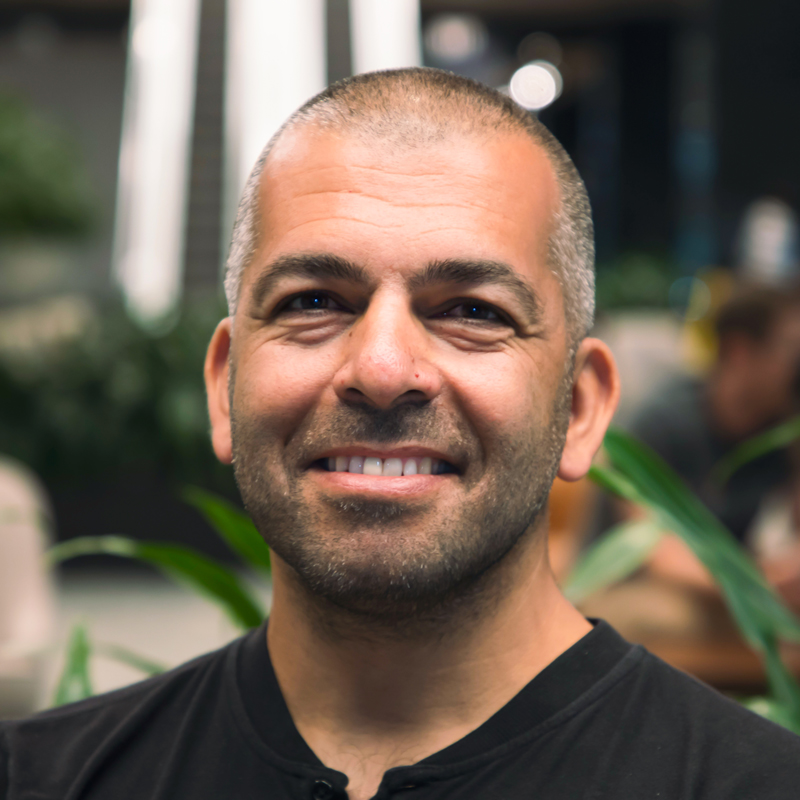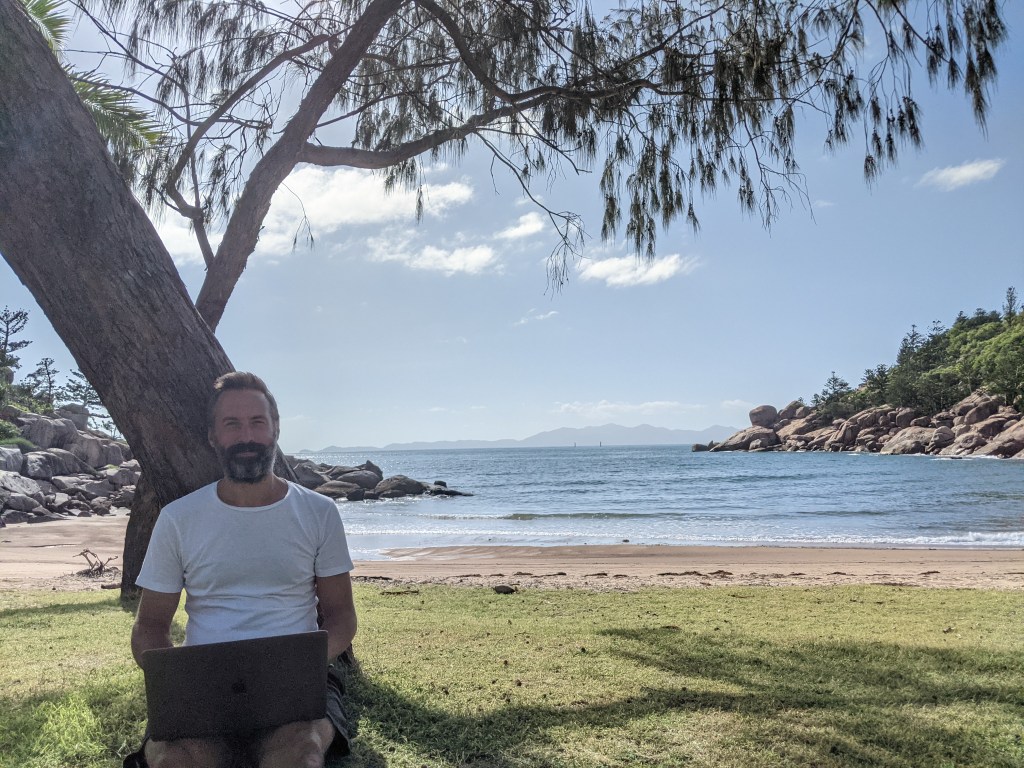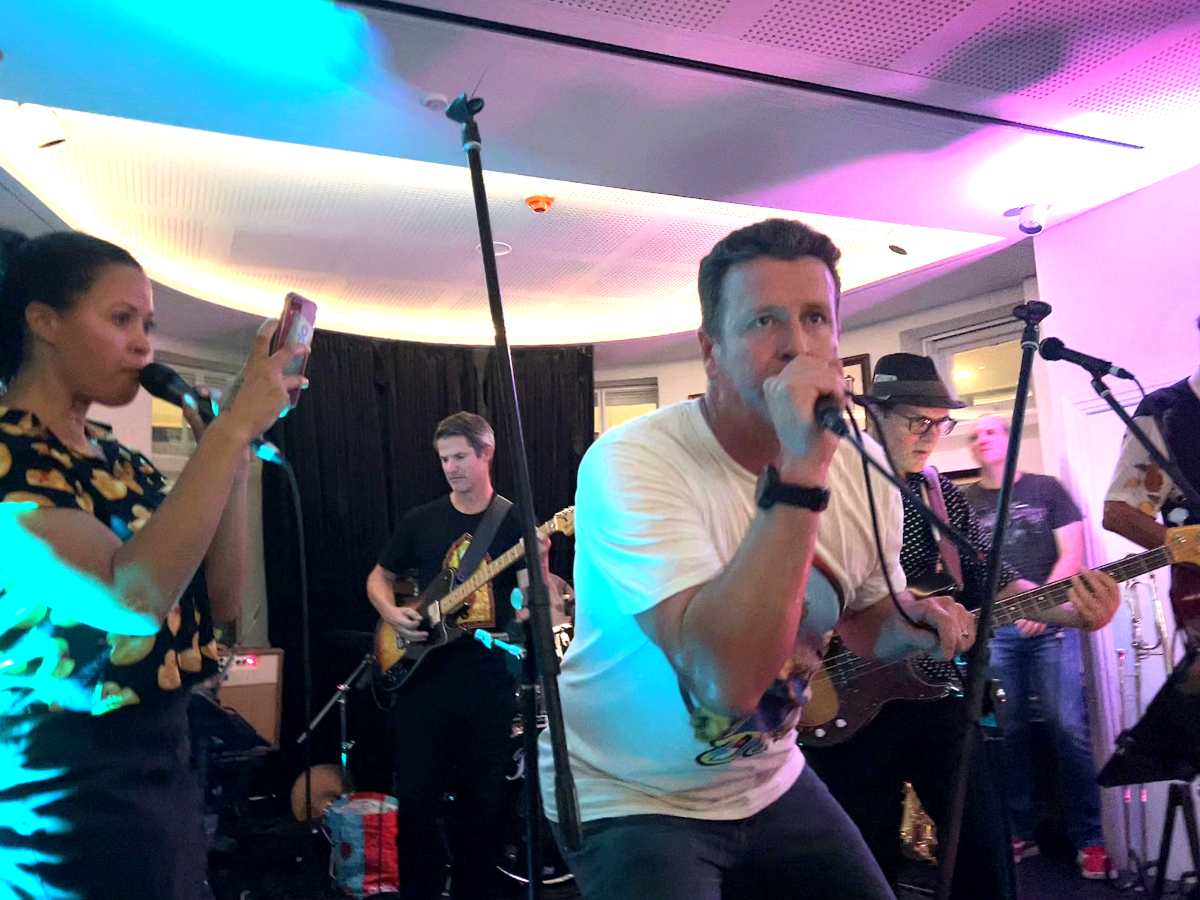This company pays you to work from a tropical island in Queensland, or the ski fields in New Zealand … or Hobart.
In its bid to be the best place to work in Australia, Mantel Group was deciding where to locate its next “destination” work hub. Four candidates were discussed: Byron Bay, Margaret River, Hobart and El Questro station in West Australia’s Kimberley.
The company already had such hubs in Queenstown, New Zealand, and Magnetic Island, off the Queensland coast, where employees could go for working holidays, meetings and courses, often paid for by Mantel.
El Questro was soon eliminated as a candidate because of connectivity and the wet season closing it five months a year. Then the software services company’s 820 employees got to decide.
They voted for the Tasmanian capital, Hobart. At first, the choice surprised Mantel’s head of people and culture, Caroline Henshaw. But then it didn’t.

“We gave them a list of things to think about when they voted,” Henshaw explains. “The team weren’t just thinking about themselves. They were also thinking: where would there be untapped talent? Where would it be a little bit cheaper. The team think about the business almost as if it’s their own.”
That’s partly because it is. The company does not give out shares to staff, but one in 10 have bought in with their own money when Mantel was seeking capital for takeovers and expansions. It has expanded in five years to encompass nine separate software companies.
Co-founder Con Mouzouris had been a co-founder of another software services company, Odecee, which was bought out by the multinational Cognizant in 2014. He stayed on at first, learnt a few lessons, then parted ways. Between picking up the kids from school and pottering around the Bayside Melbourne house, Mouzouris had time to dream about what his perfect business would look like. What would be the best place to work?

He knew that if it was going to attract the type of people he needed, it would have to be the sort of place they wanted to work at.
When he got talking to Henshaw in 2017, they tossed around a lot of ideas.
They talked about Netflix and its now famous corporate ethos, where there’s no set holidays, no ceiling on sick leave, employees are delegated to make big decisions without sending them upstairs. Where there is virtually no upstairs.
They talked about General Stanley McChrystal – think the character played by Brad Pitt in the movie War Machine – and his “team-of-teams” concept. McChrystal had framed his ideas while figuring out how to reshape the US army into autonomous yet coherent units to counter the decentralised whack-a-mole model of Al-Qaeda in Iraq. McChrystal has likened it to a legacy business fighting off innumerable start-up insurgents.
In mimicking the team of teams, Mouzouris made Mantel into a “house of brands” – all nine of them with their own areas of expertise in the software services sector. None would exceed 150 people (thought to be the maximum number for everyone to really get to know each other). But all the brands would be encouraged to mingle and work with each other.
Mantel would have no human resources manual full of policies and procedures, they decided. But, back then, with a staff of almost zero, they were aiming to have 1000 employees by 2025. (They now expect to reach that figure in 2023.) So they knew they would soon need to replace the big fat HR handbook with something.
“We hire adults, and we treat them as adults,” says Mouzouris. “We use our principles to decide what’s right and wrong … We don’t have a policy to say, ‘Your per diem is $50 a day and you can’t book a flight for more than $200.’ We encourage our people to make the right choice based on the situation at hand. There’s no need to fly to Sydney on a $700 Qantas flight. But maybe one day there will be. Just make the right decision for the business.”
Henshaw knew what employees didn’t want. “They didn’t want hierarchies. they didn’t want performance reviews. They didn’t want – and I’ll choose my language carefully – colleagues that ‘weren’t nice’, I guess is the best way to say it without swearing.
“And Con would be too humble to say, but, ethically, businesses are often terrific during good times. However, when someone has a significant personal issue or illness, companies often aren’t as supportive as they should be. And so for us, that was a really important thing, to create a culture that’s there for you during the tough times.” They talked long and hard about unlimited sick leave, before giving it a try. They kept a close watch on it. One employee with a very sick child took four months, but they noticed the overall amount of leave taken did not blow out. “We hardly even look at those numbers now,” says Henshaw.

The idea to set up in Magnetic Island began when, in 2018, front-end software engineer, Ben Howl, said he wanted to relocate his family there and work remotely.
In place of performance reviews, Mantel has an annual “My Deal” arrangement where employees discuss what they want to achieve and how they want to do it. Maybe develop a new widget, work weekends, attend a course. They get budgets.
Howl managed the relocation, then lobbied for the company to set up an office on the island – eight kilometres off Townsville – for others to join him. Mantel said yes. They established the office hub sandwiched between a pizza joint and a chemist.
It would allow staff to enjoy working holidays there. And if they’re going to meet a client or hold a workshop there, or perhaps meet colleagues for a project, Mantel will pay their way.
A lot of the team ski, so a Queenstown hub soon followed the tropical island. Three of the Queenstown Mantelorians are pictured at the top of this article. Hobart is due to open in early 2023.
“It’s all part of our relentless pursuit of being Australia’s best place to work.”
That aim has been validated by the private Great Place to Work Institute, which has for the last two years named Mantel as the country’s best workplace in the medium-sized-business category.



